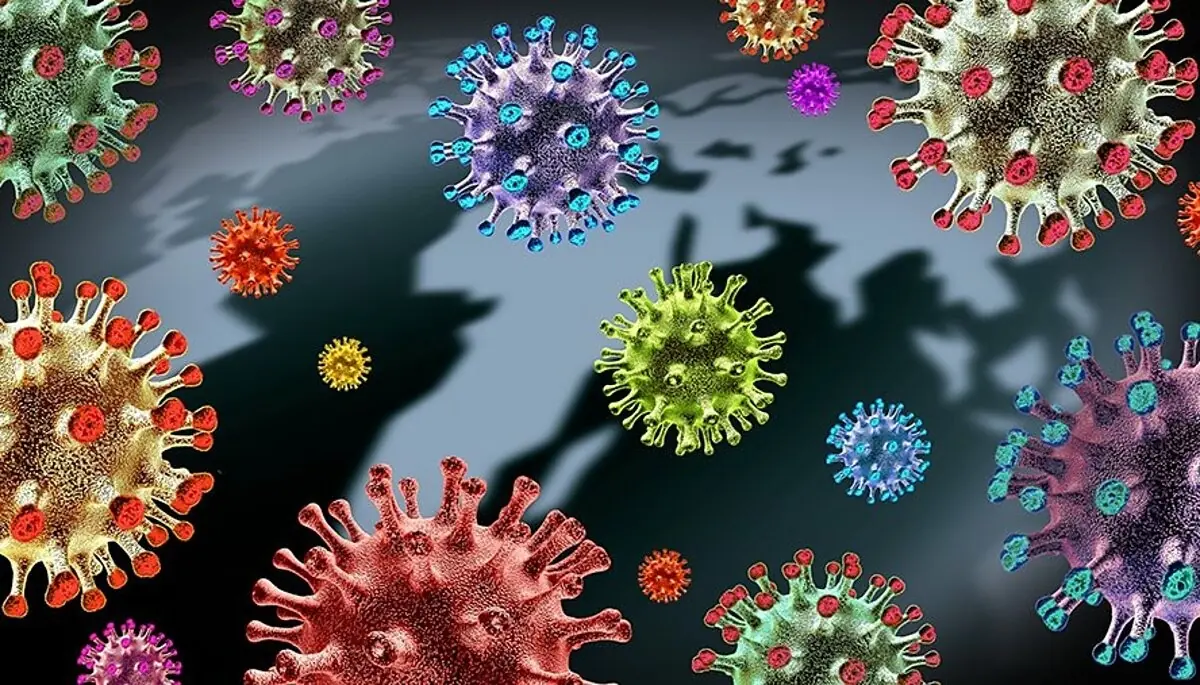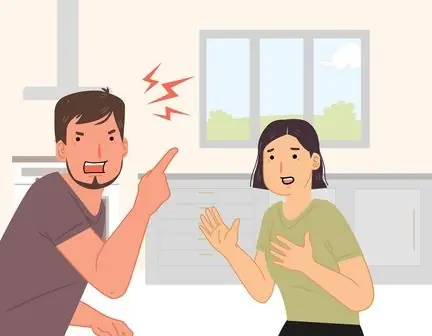
Bizarre permanent effect being stressed for just 5 days can have on your body
 Mental Health Expert Colleen Marshall Reveals What Prolonged Stress Can Do to Your Body
Mental Health Expert Colleen Marshall Reveals What Prolonged Stress Can Do to Your Body
We all feel stressed from time to time—tight deadlines, personal responsibilities, the occasional sleepless night. But when stress becomes a constant, unrelenting part of life, it doesn’t just mess with your mind—it can have profound effects on your body, too.
Mental health expert Colleen Marshall, a licensed marriage and family therapist based in California, recently explained how prolonged stress can wreak havoc on physical health in ways most of us never even consider.
We’re not just talking about the occasional pressure from a busy day. This is the kind of stress that lingers for days or even weeks, building up without giving your body a break. And once it takes hold, both you and the people around you may start to notice significant changes—some subtle, others more dramatic.
The Visible and Invisible Signs of Chronic Stress
Marshall notes that chronic stress manifests physically in a variety of ways. Among the most common symptoms are:
-
Breakouts or worsening of skin conditions like acne
-
Weight fluctuations—either loss or gain
-
Frequent headaches
-
Difficulty sleeping
-
Mood swings and irritability
But there’s one unexpected effect of stress that might catch you by surprise: your hair turning grey—or even white.
Yes, you read that right.
How Stress Affects Your Hair
Marshall points out that high stress levels trigger the release of norepinephrine, a chemical associated with the body’s fight-or-flight response. This compound, along with stress hormones like cortisol, floods your system when you’re under constant pressure.
This hormonal surge can cause melanocyte stem cells—the cells responsible for giving your hair its color—to become depleted or damaged. Once these cells die and can’t regenerate, your hair may begin to turn grey or white, sometimes in a surprisingly short time frame.
You might think this transformation takes months or even years, but research suggests that changes at the cellular level can begin in as little as five days under intense stress.
What the Research Says
Recent studies, including experiments conducted on mice, reveal just how swiftly stress can impact hair pigmentation. In one study, researchers isolated mice and subjected them to extreme emotional distress. Within a matter of days, the mice’s fur began turning grey. This was due to a rapid loss of their pigment-producing stem cells.
Humans, of course, have a longer hair cycle than mice, so changes may not be noticeable right away. But the mechanism is the same, and depending on your age, health, genetics, and the severity of the stress, you might start to see strands of grey sooner than expected.
Other Physical Symptoms of Stress
Grey hair is far from the only unusual side effect of prolonged stress. According to Marshall, people may also experience:
-
Flare-ups of eczema, psoriasis, or other skin issues
-
Brittle nails that crack or peel easily
-
Digestive problems or changes in appetite
-
General feelings of fatigue or low energy
In more serious cases, stress can contribute to or exacerbate autoimmune conditions. For example, some individuals predisposed to alopecia (a condition causing hair loss) may experience sudden and noticeable hair shedding during or after intense periods of emotional turmoil.
One individual even shared how a single month of extreme stress led to patches of hair loss that they had never experienced before. Another reported noticing white hairs and significant changes in their appearance after living under chronic stress for several years.
Why It’s Important to Pay Attention
The takeaway? Stress isn’t just “in your head.” It’s a full-body experience that can alter your appearance, weaken your immune system, and disturb your overall well-being. It’s crucial to recognize the signs early and seek out healthy ways to manage and reduce stress, whether that’s through therapy, lifestyle changes, or even small daily habits like deep breathing, meditation, or simply getting outside for a walk.
Ignoring stress doesn’t make it go away—it just gives it more power to affect your body in ways you might not expect.
News in the same category


Hyperacute rejection-engineered oncolytic virus for interventional clinical trial in refractory cancer patients

Your Feet Could Be Signaling That Your Arteries Are Clogged

36-Year-Old Teacher Dies From Diabetes Doctors Say Was Triggered By Everyday Foods

Cancer Rates Rising in Gen X and Millenials Compared to Older Generations, Study Finds

Lungs Full of Mucus? 1 SINGLE Drop Clears Airways & Restores Lung Health! | Barbara O’Neill

Rejuvenate Your Prostate Naturally: The Incredible Power of Tomato and Garlic Juice

Experts reveal the five foods that seriously affect your eyesight including one many of us eat every day

Early signs of diabetes many fail to notice

Everything to know about US measles outbreak as 2025 cases so far surpass numbers for whole of 2024

Doctor sends warning to anyone 'micro-dosing' Ozempic as fears grow about what it could do to your body

Caution Over Vaping After Teen Develops ‘Popcorn Lung’ Linked to Chemical Exposure

10 Reasons Ramen Noodles Are Bad For You (and How to Make Them Healthy)

101-Year-Old Doctor Is Still Driving, Shares His 7 Tips For A Long Life

Lab-grown teeth might become an alternative to fillings following research breakthrough

15 Surprising Things Men Say Make Women Seem Older Than They Are

Study Finds People with Certain Blood Type Are Prone to Early Stroke

New Castor Oil, Celtic Salt & Baking Soda Detox Changes EVERYTHING! (Must Try!)

The Cancer Destroying LEAF That Doctors Aren’t Telling You About! Barbara O’Neill SECRET
News Post

I-motif DNA structures are formed in the nuclei of human cells

Hyperacute rejection-engineered oncolytic virus for interventional clinical trial in refractory cancer patients

Your Feet Could Be Signaling That Your Arteries Are Clogged

36-Year-Old Teacher Dies From Diabetes Doctors Say Was Triggered By Everyday Foods

Cancer Rates Rising in Gen X and Millenials Compared to Older Generations, Study Finds

Lungs Full of Mucus? 1 SINGLE Drop Clears Airways & Restores Lung Health! | Barbara O’Neill

Rejuvenate Your Prostate Naturally: The Incredible Power of Tomato and Garlic Juice

Experts reveal the five foods that seriously affect your eyesight including one many of us eat every day

Early signs of diabetes many fail to notice

Everything to know about US measles outbreak as 2025 cases so far surpass numbers for whole of 2024

Doctor sends warning to anyone 'micro-dosing' Ozempic as fears grow about what it could do to your body

My Sister Inherited Everything, While My Father Left Me Only a Chessboard, But the Secret It Held Shocked Our Entire Family

I Heard Our Baby Crying While I Was in the Shower & My Wife Was Watching TV – When I Entered His Room, I Screamed in Shock

My Husband Refused to Replace Our Broken Vacuum and Said I Should Sweep Since I'm 'Just on Maternity Leave' — So I Taught Him a Lesson He'll Never Forget

My FIL Got Rid of My Beloved Flower Garden & Dug a Pool for Himself without Permission – But Karma Hit Him Back Harshly

I Came Home to Find My Kids Outside with Packed Bags — It Was the Hardest Day of My Life

Greedy Brothers Mock Younger Sister Because She Only Inherited an Old Umbrella

My MIL Left Me Everything Instead of Her Own Children, But My Inheritance Came With a Trap
